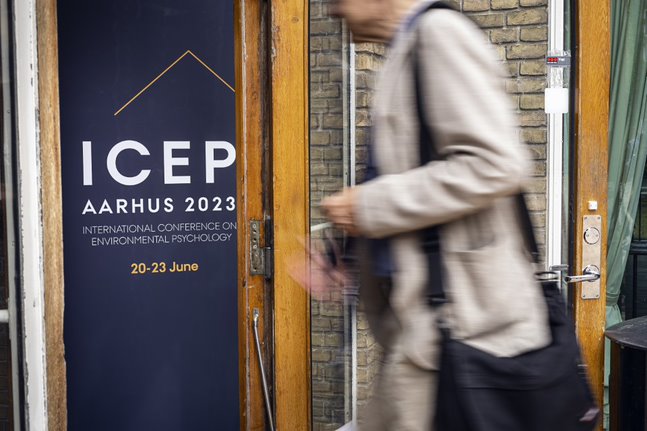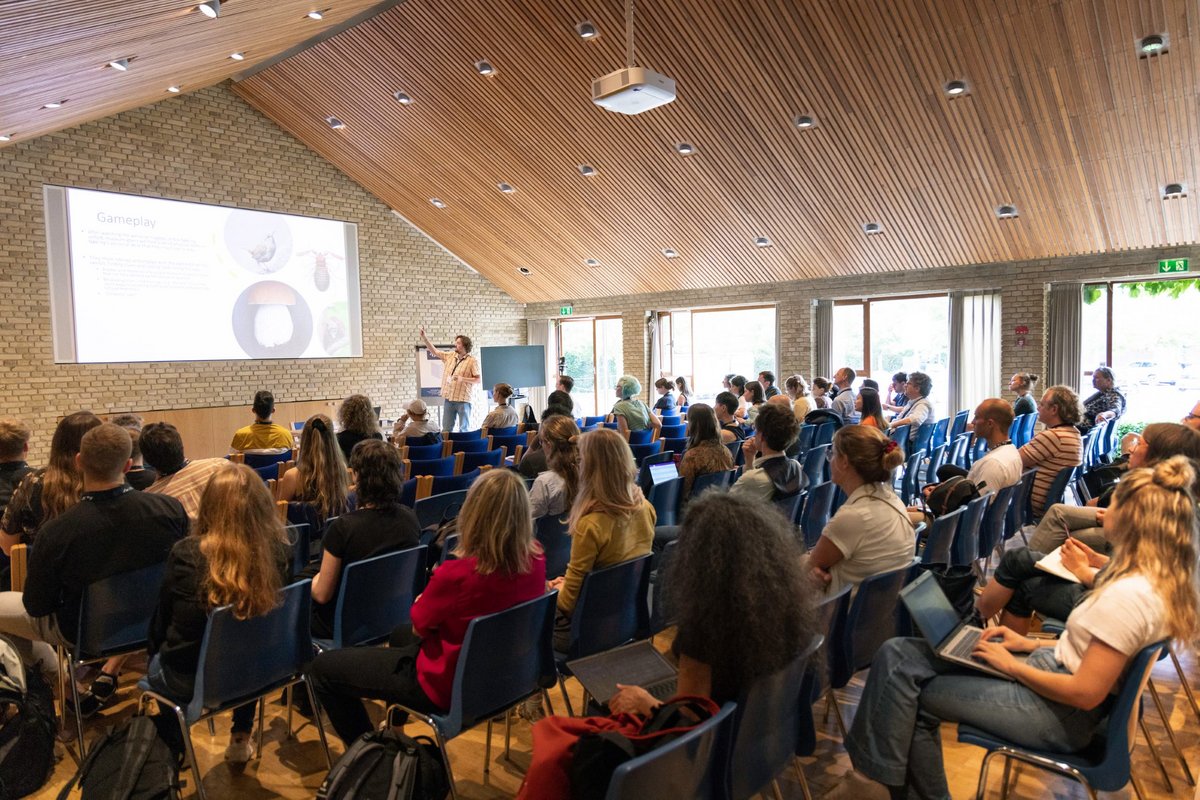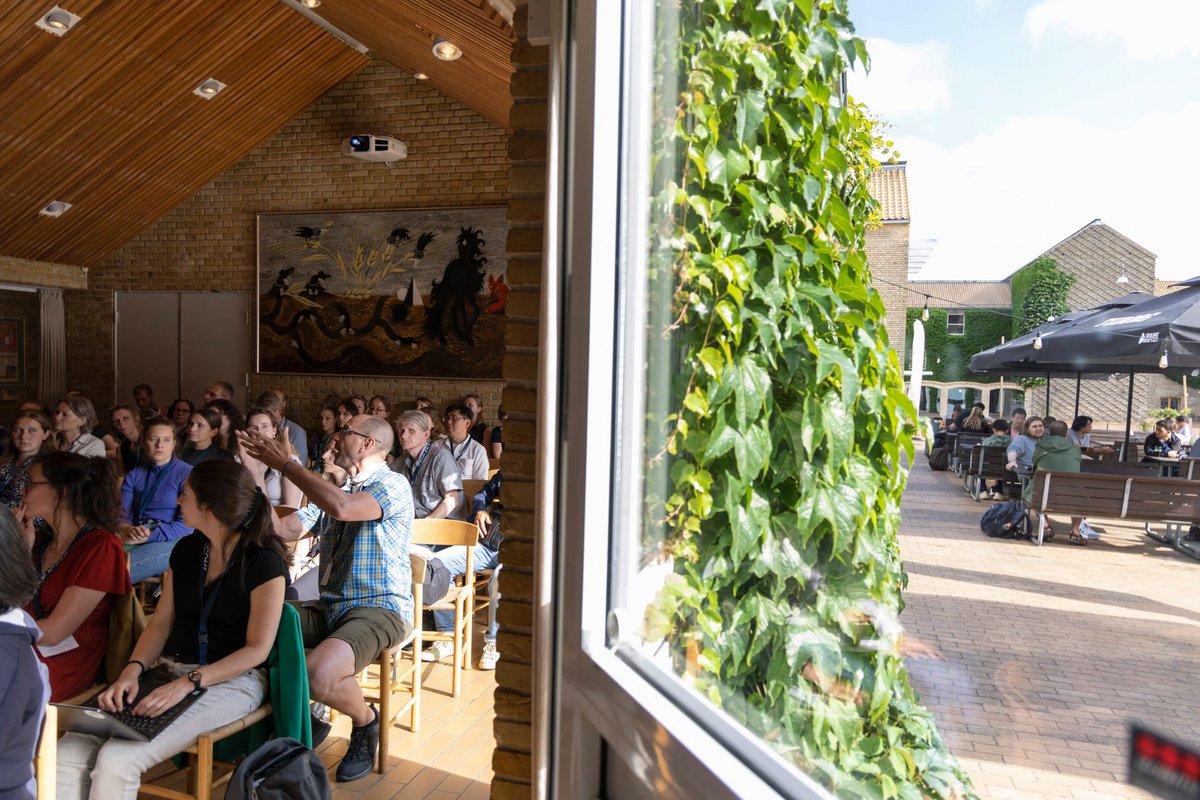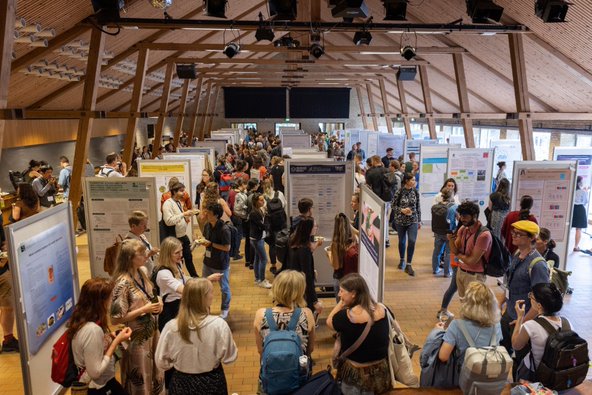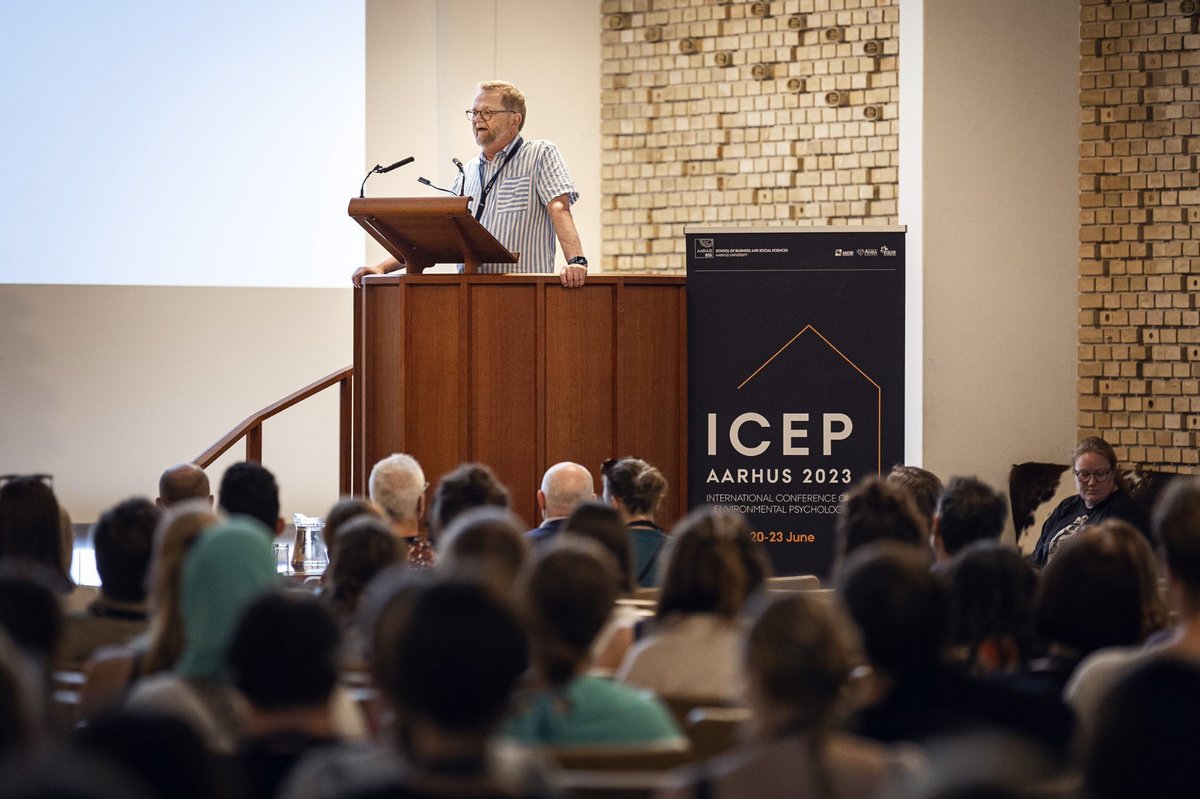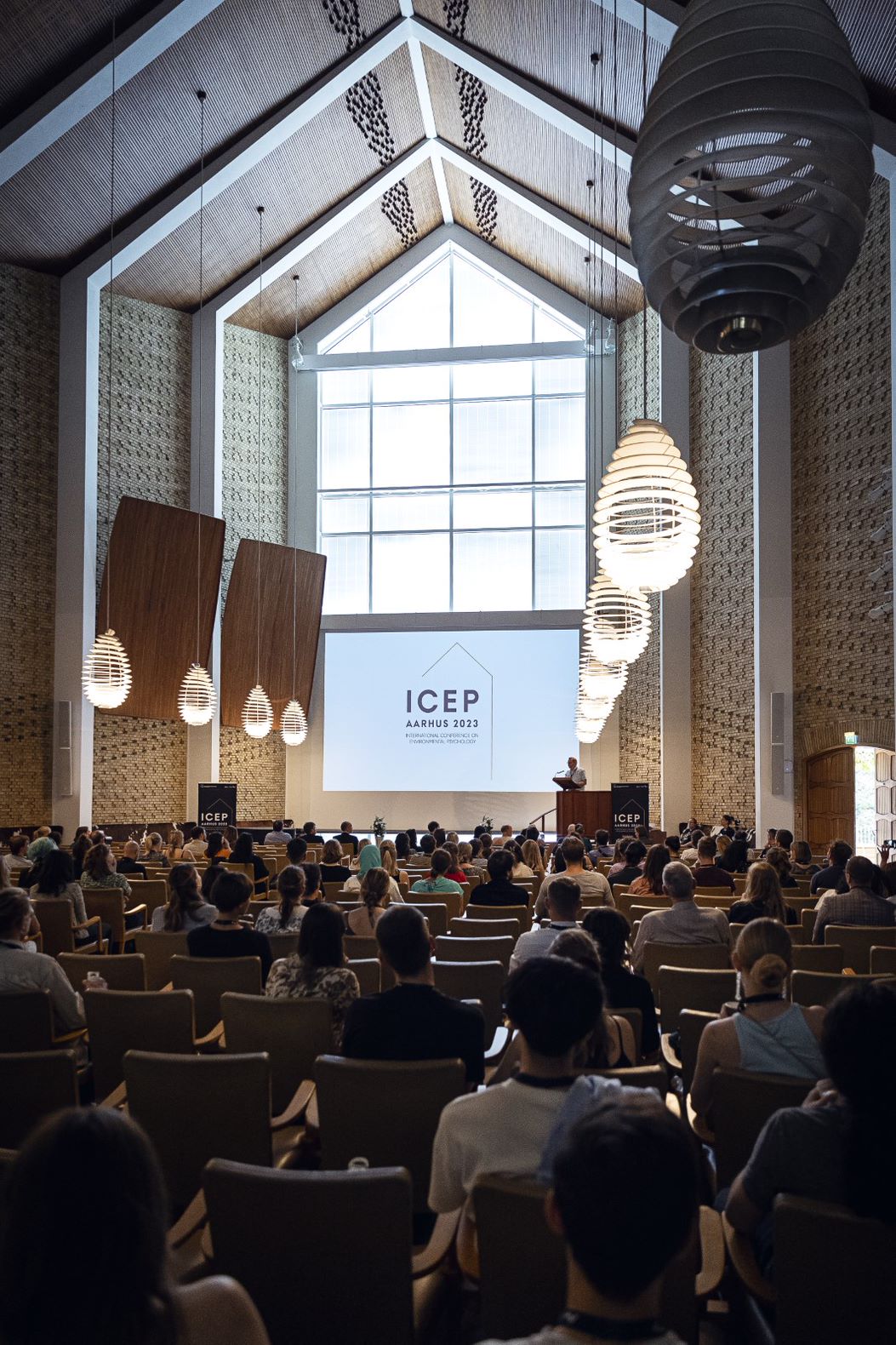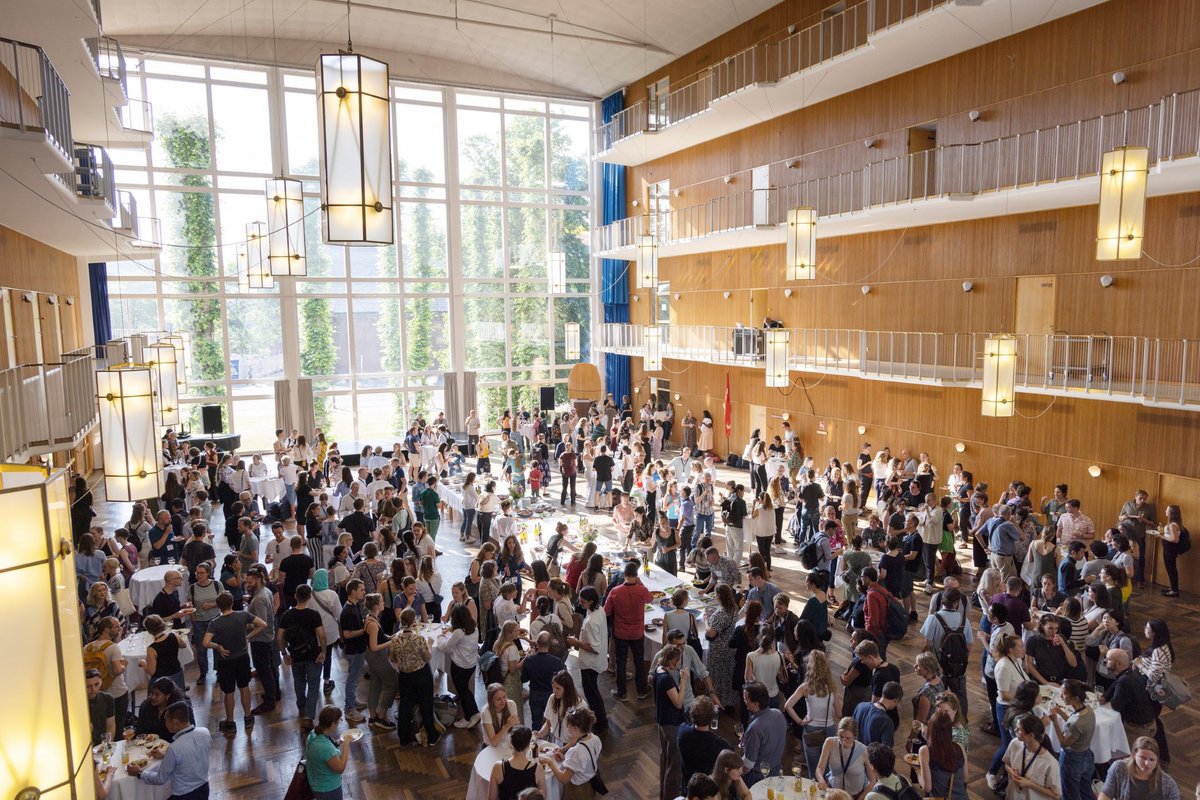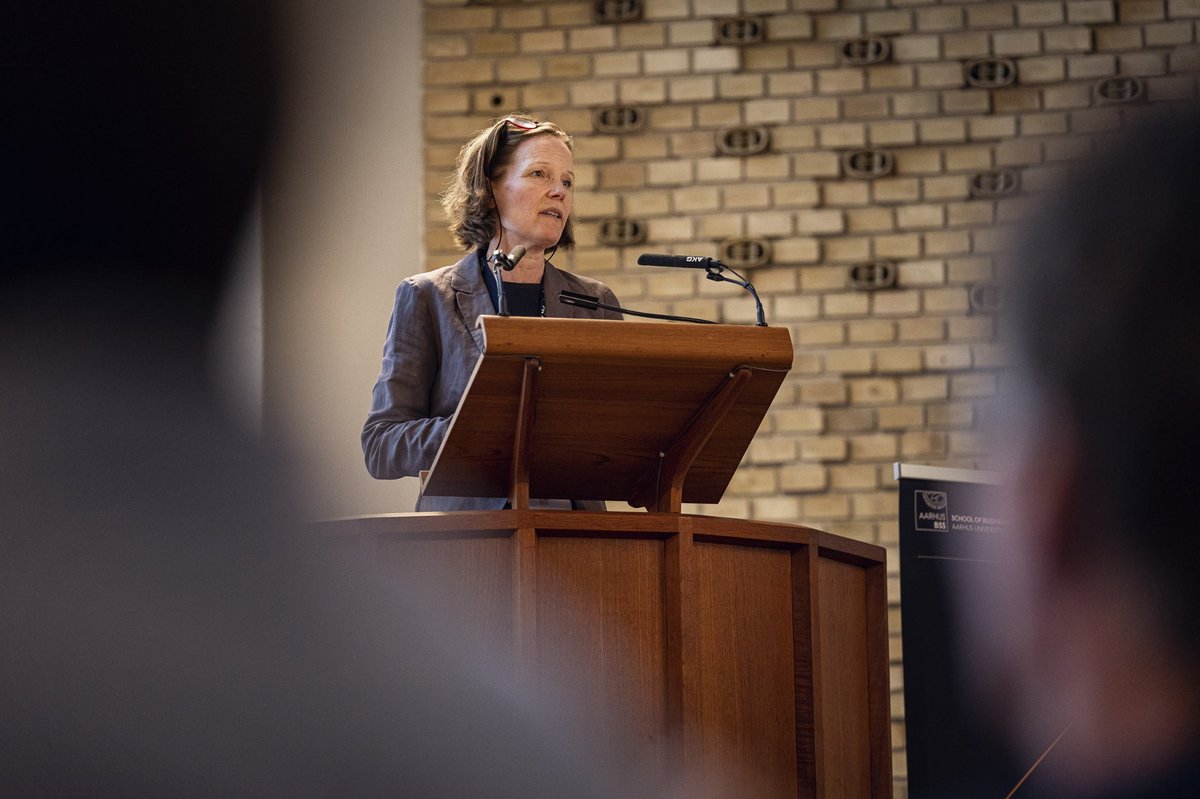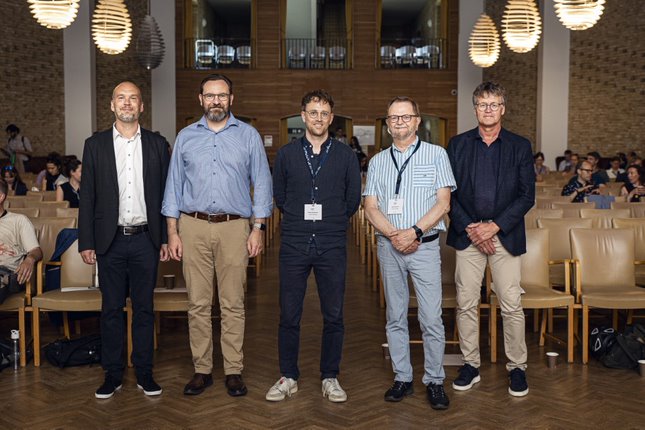Impressions from ICEP 2023
International Conference on Environmental Psychology, Aarhus, Denmark, June 20 to 23, 2023
Impressions from ICEP 2023 - International Conference on Environmental Psychology, Aarhus, Denmark, June 20 to 23, 2023
The International Conference on Environmental Psychology 2023 (ICEP 2023) took place in vibrant Aarhus, Denmark, June 20 to 23, 2023. Right after the conference, we, the local organizers, were exhausted, but also invigorated and happy, not least because of the kind and positive feedback we received from grateful participants.
ICEP 2023 was organized as a collaborative effort by members of CIBP from the Department of Psychology and Behavioural Sciences and the Department of Management at Aarhus University. We hosted the conference at the main campus of Aarhus University, ranked in the top 10 of the most beautiful university campuses in Europe by The Times Higher Education (2018). The size of the conference – about 525 physically present – stretched the university’s conference centre and Aula to the limit, but they were adequate, with the advantage of having all rooms for the plenary sessions, keynotes, parallel sessions, and poster sessions close by.
The conference obviously welcomed papers on all topics in environmental psychology. However, acknowledging that radical changes in human behaviour are needed to mitigate the negative effects of emissions and resource consumption/depletion, we had chosen the conference theme “Towards an impact-oriented behavioural science and sustainable behaviour change”. Indeed, a large proportion of oral and poster presentations focused on the promotion of sustainable behaviour change, directly or indirectly. The same is true for the four keynotes, which were excellent and each covered important aspects of impact-oriented behavioural science.
In the opening keynote, Christian Klöckner reflected on the potential and the limits of environmental psychology for contributing to a better world. For this, he drew on examples from finished and ongoing projects, including a study in Norwegian and German supermarkets to increase consumption of sustainably fished seafood, an intervention in Norwegian schools to reduce food waste, and the EU project ENCHANT, which implemented large scale behavioral science-informed intervention strategies in close collaboration with municipalities, energy providers, and NGOs. He showed that effects in the field are often substantially smaller than in the lab, among other things because carefully planned large interventions studies in the field can be derailed by unexpected events, such as a pandemic or an energy crisis. And he advocated more field studies to obtain valid estimates of the effects of behavioral interventions.
In the Grauman lecture, Lorraine Whitmarsh also focused on the difficulty of achieving the degree of behaviour change required to reach our climate change targets. She emphasized the need for social transformation and argued that public engagement and participation in decision-making about what a low-carbon future looks like, and how to reach it, are required to reach ’net zero’ carbon targets in the coming years. We also need a wide range of measures to change people’s behaviour at home, work and elsewhere, and “upstream” solutions are generally much more effective than “downstream” measures. Based on her prior research, Lorraine suggested five principles that increase public support for net zero policies: (1) fairness, (2) co-benefits, (3) freedom and choice, (4) information and education, and (5) leadership.
Nina Mazar’s keynote lecture was very much in line with the two former, emphasizing the difficulty of transplanting ideas from the laboratory or controlled pilot settings into the ”wild,” translating findings from one context to another, and scaling up interventions. Behavioral science has the ability and promise to tackle tough social problems, but it is increasingly important to pay attention to the nuances of how the science is done and how to use behavioral science. Nina showed examples of how minor changes in formulations of items in questionnaires can lead to radically different results, of substantially smaller effects of behavioral interventions when scaling up, and of failure to generalize results between WEIRD and non-WEIRD contexts. She also advocated more field studies, paying careful attention to details and contextual factors.
In the final keynote lecture, Terry Hartig challenged our fundamental understanding of nature. “Nature” has diverse meanings, each with its referents. Those working in environmental psychology and allied fields favor some of those meanings, using them and attending to their referents in particular ways. Other meanings see less use, despite their relevance, and their referents receive relatively little attention. Terry discussed some meanings of “nature” and some problems that their use or neglect has had for environment-behavior-design research. Those problems involve forms of insensitivity or blindness – to some ubiquitous and behaviorally influential natural phenomena, to historical and cultural contingencies of restorative benefits of nature experience, and to limitations of evolutionary assumptions commonly invoked in discussions of such benefits. Terry emphasized the importance of awareness of these problems for further development in theory and methods for the study of human-nature relations. In this way, he was very much in line with earlier keynote speakers in emphasizing the importance of field studies and contextual contingencies.
Besides these excellent keynotes, another highlight was the very well-attended panel discussion on the value and impact of environmental psychology in policy and practice, organized by Birgitta Gatersleben and with panel members Sarah Golding, Chris Jones, Melissa Marselle, Linda Steg, John Thøgersen, and Lorraine Whitmarsh. The main focus of this lively debate was on positive examples and how to overcome barriers for impact.
Most importantly, ICEP 2023 had attracted more than 400 oral presentations in six parallel sessions, and 143 poster presentations, making this the biggest ICEP ever. All plenary and paper presentation sessions were streamed online on Zoom. About 50 people had registered to participate online, 19 of these with an online poster presentation (but with posters physically present in the general poster session). For cost reasons, the conference was not fully “hybrid”. Online participants could only listen to presentations, they could not interact with speakers. So, in case of questions or follow-ups, they would have to send the speaker an email.
The possibility of participating online (for a relatively low fee) was created for those could not afford the trip to Aarhus or preferred to avoid a flight trip, to make the conference as sustainable as possible. Based, among other things, on discussions at ICEP 2021 in Syracuse, we had integrated sustainability thinking in all aspects of the conference, minimising negative environmental impacts and promoting positive impacts. For example, Aarhus is easily accessible by train from everywhere in Europe. At conference lunches, we only served vegetarian food and at the conference dinner the food was vegan. We ensured that as much food as possible came from local and organic producers. To reduce waste, we gave all participants personal and reusable drinking bottles that can be refilled with tap water. No bottled water was offered. Also, coffee was served in mugs, no single-use cups. The conference badge was plastic free, we did not in general give out writing pads and pens (but they were obtainable on request), and we did not print the conference handbook or abstracts (but instead provided them in the conference app). We believe all these sustainability measures worked to everyone’s satisfaction.
John Thøgersen and Stefan Pfattheicher
on behalf of the Organizing Committee.
